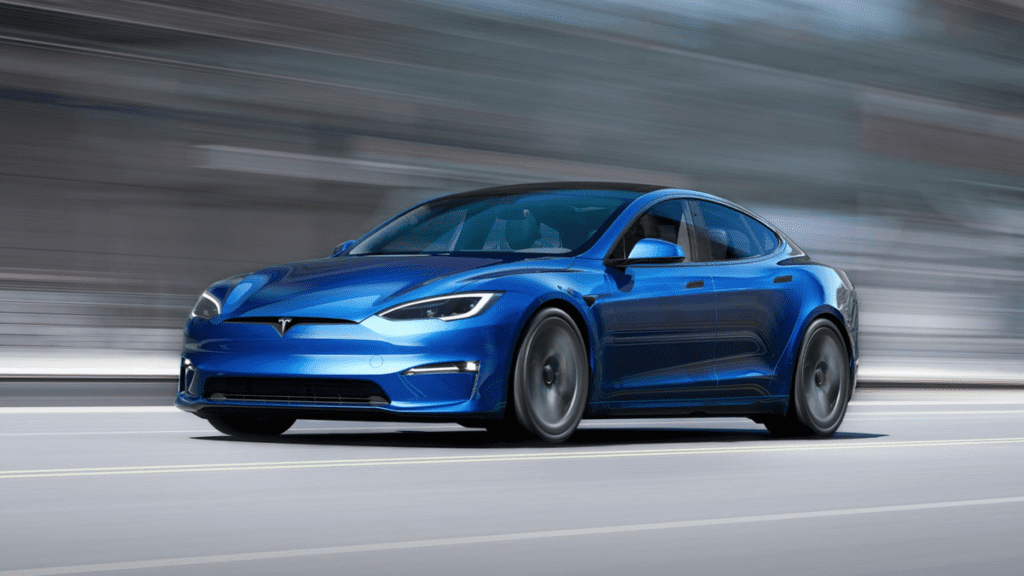Tesla Engineer Explains What a Model S Plaid Does When You Active 'Drag Strip Mode'

Up until a few days ago, when Dodge unveiled the 1,025-hp Challenger SRT Demon 170, the Tesla Model S Plaid claimed to be the fastest-accelerating mass-production vehicle on earth. Tesla says the top-dog Plaid can do 0-60 in 1.99 seconds and rip a 9.23-second quarter-mile. To do that, you’re going to have to engage Drag Strip Mode, and a newly-released video from Tesla explains exactly what happens when you activate that setting.
In case you missed it:
This short video, shot at a drag strip and published on Tesla’s YouTube channel this week, features Tesla performance engineer Chris Mayfield, in racing suit and helmet, explaining all the chassis, drivetrain, and calibration changes that happen when you throw your Model S Plaid into Drag Strip Mode. It’s actually quite a bit!
For starters, the cooling circuits for the three motors — which pump out a combined 1,020 hp at maximum — get going, because electric motors work most efficiently at low temperatures. Conversely, the battery starts to warm up, targeting its ideal operational temperature to provide (I’ll use a technical term here) maximum electrons.
Then the Model S Plaid’s height-adjustable suspension goes into Cheetah Stance, a forward-raked pose where the front end of the car drops as low as possible over the front axle, maximizing front-wheel traction for the launch.
After that, it’s the typical dance: Mash the brake with your left foot, jam on the accelerator with your right foot, drop the brake, and hang on.
Mayfield’s car in this video has Tesla’s bone-headed steering yoke — which, thankfully, can once again be replaced by a normal steering wheel as a no-cost option, though you’ll have to pay $700 if you want the swap done on an existing Tesla. But on a straight-line quarter-mile run, you (hopefully!) don’t need a ton of steering input.
Here’s the full rundown on what happens in Drag Strip Mode, right from a Tesla engineer’s mouth:
How Drag Strip Mode Works
Via CarScoops




